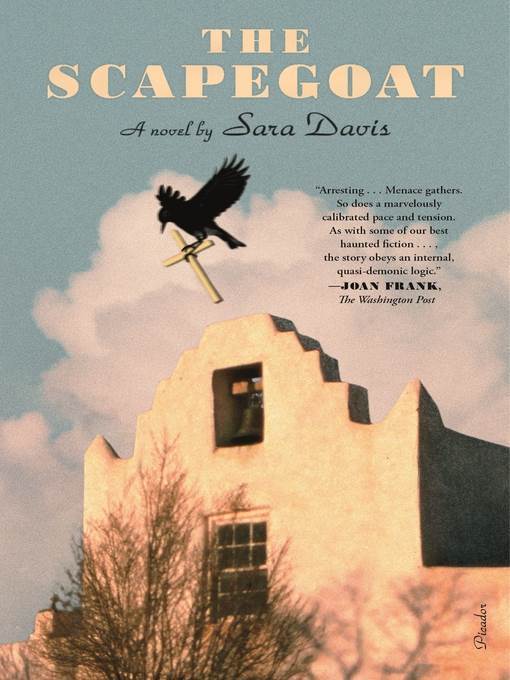
The Scapegoat
A Novel
کتاب های مرتبط
- اطلاعات
- نقد و بررسی
- دیدگاه کاربران
نقد و بررسی

December 15, 2020
In this unnervingly good debut, Davis' narrator pieces together details of his father's death. N is an employee at a prestigious San Francisco Bay Area university. "As a rule...," he says, "I preferred not to involve myself in university gossip, or department politics, aware, without regret, that I had chosen for myself a somewhat lonely stance." N's father has recently died, and the circumstances surrounding his father's death nag at him, invading his waking and sleeping hours. "The more I considered them, the stranger they seemed," he says. When he happens upon a connection between his father and a hotel built over the site of a former California mission, the investigation begins to consume his life. He encounters a female guest lecturer who might have some answers, yet she tells him that his current actions are "not the right sequence of events." N's dreams become a robust portion of the narrative, as do his affinity for Swedish crime novels and classical music and a fraught relationship with a young female colleague. His daytime hours take on a soporific quality. Underscoring N's search for answers is the haunting idea that the hotel, like so much of California's celebrated history, is built on the destruction of the state's Native population. It is, as one character says, "like making a hotel out of Auschwitz." As N tries to piece together clues, his vision of what he's pursuing becomes increasingly cloudy: "Don't, I told myself, lose the thread." He loses trust in a clear sequence of events. "Not everything is connected, I thought, weary of myself." The tension of the novel builds to delirious heights, and he gets closer to answers about the death he's been trying to reconstruct, yet he struggles with his memory and his ability to stay alert. "How did people do it? I wondered. How did they insert themselves into the present?" An eerie and surprising reconstruction by an unreliable narrator.
COPYRIGHT(2020) Kirkus Reviews, ALL RIGHTS RESERVED.

January 11, 2021
Davis, a PW reviewer, debuts with a delightfully off-kilter account of a man’s hallucinatory search for clues about his father’s death. “The path between events that may seem unrelated will soon become clear,” reads the unnamed and unreliable narrator’s horoscope at the start of the book, a promise that Davis gleefully breaks. The narrator, a middle-aged, misanthropic loner, tours the house his father used to live in, and wonders what happened (no details are provided at the outset). Various figures supply him with cryptic clues about his father’s fate and entanglements, such as a conversation with a professor about a graduate student who knew his father, the meaning of which hovers just out of the narrator’s grasp. Central to the mystery is the Old Mission San Buenaventura hotel his father had visited for unknown reasons, where he finds a bloody suitcase. Historical details of colonial genocide add another level of ominousness (“Stop sites of genocide from becoming tourist attractions” reads a flier addressed to the narrator’s father, who was involved in its opening) but their connection to the mystery feels tenuous. In the end it’s beside the point, as Davis offers plenty of surprises from her narrator. With the eeriness of a David Lynch film, this is made gripping by the narrator’s self-made traps.

























دیدگاه کاربران